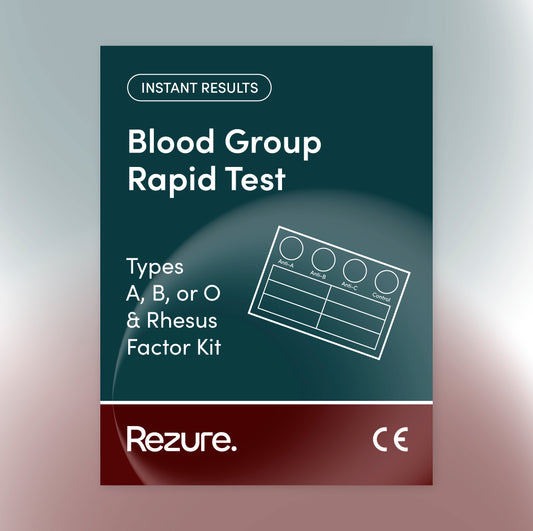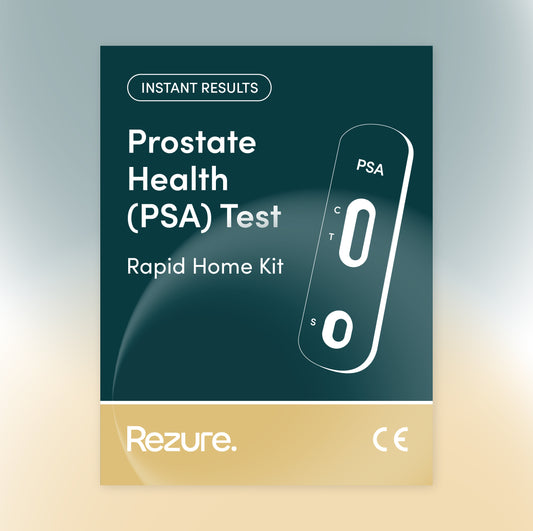Sleep deprivation: What happens inside your body?

Ever feel like your brain's running on fumes, your patience is thin, or you're constantly catching colds? The culprit might be simpler than you think.
We often treat sleep as a luxury, something to be squeezed in or sacrificed, but the truth is, it's a fundamental pillar of your well-being. When you consistently shortchange yourself on hours of rest, it impacts your whole body.
This blog post looks into the profound impact of sleep on health and explores what happens inside your body when you're sleep-deprived, from your mental clarity to your immune defenses and beyond.
The brain drain: cognitive impacts of sleep deprivation
Sleep deprivation doesn’t just leave you feeling tired; it can have a profound and immediate impact on how your brain works.
At its core, sleep is essential for mental clarity and cognitive performance. Without it, the brain slows down, becomes less accurate, and struggles to perform even simple tasks efficiently. Concentration weakens, alertness fades, and tasks that once felt manageable start to feel overwhelming.
These aren’t just minor inconveniences; in high-stakes situations like driving or making important decisions, these impairments can bring serious risks.
Your ability to think critically, solve problems, and make sound judgments is also compromised. Creative thinking becomes elusive, and decisions may feel rushed or poorly considered. Even memory, the brain’s ability to retain and retrieve information, is affected, as sleep is when memory consolidation occurs.
Without adequate rest, thoughts can become foggy and fragmented. These mental shifts are just one aspect of how sleep can impact the mind and body.
In the sections ahead, we’ll explore how sleep deprivation disrupts your immune function, hormonal balance, and metabolism, and why being able to spot the early signs of sleep debt is critical for protecting your overall health and well-being.
Your body's defense: sleep and the immune system
A good night’s sleep might not be the first thing you associate with staying healthy, but its impact becomes clear when you look at how closely sleep supports your immune system.
Rest is a crucial time for your body's defense mechanisms to repair and prepare.
When you are sleep-deprived, your immune system can't build up its protective forces effectively. During sleep, your body produces cytokines, which are proteins that target infection and inflammation. These cytokines are necessary to fight off invaders like viruses and bacteria.
With insufficient sleep, the production of these protective cytokines decreases. At the same time, your body produces more inflammatory cytokines, which aren't helpful when you need to fight off illness.
This means that chronic sleep deprivation can leave you more susceptible to getting sick. Have you noticed that you seem to catch every cold or flu going around when you're consistently tired? That's your immune system struggling.
Identifying this link between sleep and immunity is a crucial part of understanding the full scope of sleep deprivation effects.
Fueling your body: metabolism and hormones

Sleep plays a vital role in regulating many of your body's hormonal systems, including those that control appetite and metabolism. Sleep deprivation can disrupt these complex processes, causing a knock-on effect throughout your body.
One key area impacted is blood sugar regulation. Lack of sleep can affect your body's sensitivity to insulin, the hormone that helps move glucose (sugar) from your bloodstream into your cells for energy. When insulin sensitivity decreases, blood sugar levels can rise. Over time, chronic sleep deprivation could potentially contribute to challenges in managing blood sugar levels.
Sleep also influences hormones that control hunger and fullness. Ghrelin, often called the 'hunger hormone', increases when you're sleep-deprived, making you feel hungrier. Leptin, the hormone that signals fullness, decreases, meaning you might not feel satisfied after eating, even if you've had enough calories.
This hormonal imbalance can lead to increased cravings, often for high-carbohydrate or sugary foods, as your tired body looks for quick energy boosts. This can make maintaining a healthy weight or managing your diet more challenging.
Metabolic rate can also be affected. While the impact might be modest in the short term, the cumulative sleep deprivation effects can play a role in how efficiently your body uses energy.
Understanding what happens when you don’t get enough sleep reveals how deeply it affects metabolic and hormonal pathways, highlighting the strong connection between sleep and overall physical health.
Understanding sleep debt and chronic effects
When you miss sleep, you don't just lose that night's rest; you accumulate something called sleep debt. This isn't like financial debt that you can easily pay off with one big sum. Missing an hour of sleep each night for a week creates a debt that can take more than just one long lie-in to recover from.
Every hour of sleep lost contributes to this debt, and it builds up over time. This cumulative effect leads to chronic sleep deprivation. This is where the more significant and persistent sleep deprivation effects start to show. It's not just being tired the next day; it's a state where your body and mind are constantly operating below their optimal level.
Living with chronic sleep deprivation means your brain never gets the full chance to restore itself, your immune system is consistently underperforming, and your metabolic regulation faces ongoing challenges. The body without sleep for extended periods begins to show more pronounced signs of strain.
It's like trying to run a marathon on minimal fuel and without proper rest between training sessions. Eventually, performance suffers significantly, and the risk of breakdowns increases.
Recognising sleep debt and wider deprivation is the first step to understanding the long-term implications of consistently not getting enough rest.
Common sleep deprivation symptoms
While everyone's experience is slightly different, some common signs that indicate you're not getting enough quality sleep include:
Persistent fatigue
Feeling tired even after waking up or struggling to stay awake during the day.
Difficulty concentrating
Trouble focusing on tasks, easily distracted, or frequent lapses in attention.
Memory issues
Forgetting things more often or struggling to retain new information.
Mood changes
Increased irritability, anxiety, mood swings, or feeling emotionally sensitive.
Slower reaction times
Delayed responses can be especially dangerous while driving or operating machinery.
Poor decision-making
Impulsive choices, lack of clear judgment, or difficulty weighing options.
Increased cravings
Strong desire for sugary or high-carb foods due to hormonal imbalances.
Weakened immune function
Getting sick more often or taking longer to recover from illness.
Sometimes, we get so used to being tired that we don't even fully realise the extent of our sleep deprivation. Learning to identify these common symptoms is crucial for taking proactive steps towards better rest.
Prioritising sleep for overall well-being
Given the widespread impact of sleep on health, it's clear that treating sleep as a luxury rather than a necessity comes at a cost. Understanding what happens when you don't sleep can be a powerful motivator to make changes.
Improving your sleep doesn’t have to be complicated. Small, consistent changes can make a big difference.
Try these simple habits:
- Keep a regular sleep schedule, even on weekends
- Create a relaxing bedtime routine
- Make your bedroom dark, quiet, and cool
- Avoid caffeine and alcohol before bed
- Be patient, good sleep habits take time
Taking these steps to reduce to avoid sleep deprivation empowers you to function better, feel better, and support your long-term health.
Better sleep begins with awareness

Sleep is far more than just downtime; it's an active period of restoration and repair essential for every system in your body. The sleep deprivation effects are extensive, touching everything from your mental clarity and mood to your immune defence and metabolic health.
Ignoring the signs of lack of sleep effects or allowing sleep debt to build into chronic sleep deprivation means your body, without sleep, is operating under significant stress.
By understanding what happens when you don't sleep and recognising the sleep deprivation symptoms, you can begin to make conscious choices to prioritise rest.
Taking proactive steps to improve your sleep hygiene is an investment in your cognitive function, physical health, and overall well-being. It's about giving your body the essential time it needs to recharge and perform at its best.


